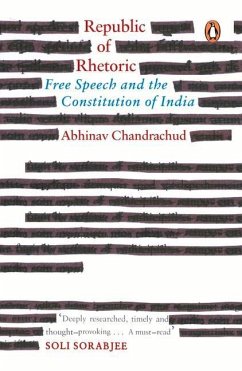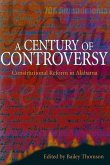Exploring the legal and political history of India, from the British period to the present, Republic of Rhetoric examines the right to free speech and it argues that the enactment of the Constitution in 1950 did not make a significant difference to the freedom of expression in India. Abhinav Chandrachud suggests that colonial-era restrictions on free speech, like sedition, obscenity, contempt of court, defamation and hate speech, were not merely retained but also strengthened in independent India. Authoritative and compelling, this book offers lucid and cogent arguments that have not been substantially advanced before by any of the leading thinkers on the right of free speech in India.
Hinweis: Dieser Artikel kann nur an eine deutsche Lieferadresse ausgeliefert werden.
Hinweis: Dieser Artikel kann nur an eine deutsche Lieferadresse ausgeliefert werden.








